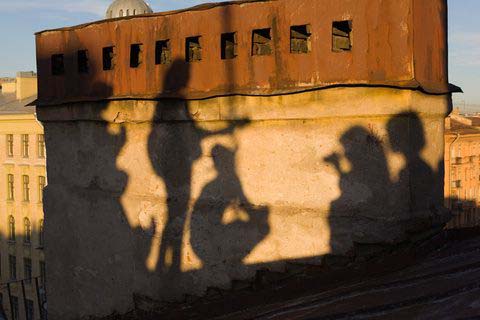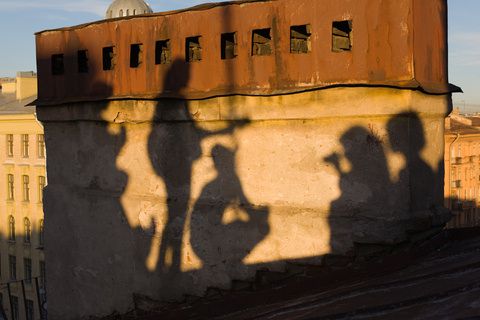The Not-So-Simple Task of Simply Being Honest, Pt 2: Shadow

As I indicated in Part 1 of this post, if we really get serious about the task of being honest with ourselves, sooner or later, we are going to run into what Jung calls the Shadow. The Shadow represents all those parts of ourselves that we do not, or do not want to, acknowledge as being parts of ourselves. As Jung himself puts it:
Unfortunately there can be no doubt that man is, on the whole, less good than he imagines himself or wants to be. Everyone carries a shadow, and the less it is embodied in the individual’s conscious life, the blacker and denser it is. If an inferiority is conscious, one always has a chance to correct it. Furthermore, it is constantly in contact with other interests, so that it is continually subjected to modifications. But if it is repressed and isolated from consciousness, it never gets corrected.
If you imagine someone who is brave enough to withdraw all his projections, then you get an individual who is conscious of a pretty thick shadow. He has become a serious problem to himself, as he is now unable to say that “they” do this or that, “they” are wrong, and “they” must be fought against. Such a man knows that whatever is wrong in the world is in himself, and if he only learns to deal with his own shadow he has done something real for the world. He has succeeded in shouldering at least an infinitesimal part of the gigantic, unsolved social problems of our day.
CG Jung, CW 11: Psychology and Religion: West and East. pp. 131 – 140
So a person’s shadow will often have a large element of moral difficulty attached to it. It may be that I have certain strong ethical standards for instance, which I not only feel that I adhere to, but which I also proclaim to the world. But it’s often the case that, underlying such a position, I in fact do not really act in a manner consistent with my conscious convictions — and, what’s more, I even hide the fact that I do so from my conscious awareness.
The above is the aspect of the shadow that preachers or moralists might easily pick up on, but there is more to the shadow than that. For the shadow also contains those aspects of our personality associated with feelings of weakness, inferiority or shame. These may be elements of our personality that we do not hide or fail to acknowledge for moral reasons, but more because we simply resist showing them to the world. These shadow contents may often concern the most vulnerable parts of ourselves, including parts of ourselves that have been deeply wounded or shamed by others, or which we simply cannot accept about ourselves. They may well have hidden themselves, not only from the view of the world, but also from my own view. Remarkably, many memories may have been repressed and split off.
And this is certainly not all that there is to be said about the shadow. There could easily be another 50 posts like this one on the subject! But it’s important to recognize that the undeveloped potentialities in my personality reside in the shadow. For instance, if I’m a fairly introverted person, in the way I present to the world, I may have a fairly extroverted shadow… or vice versa. There are very likely aspects of myself in my shadow that I find very difficult to face or acknowledge — but it may also be that a great amount of undiscovered life is there in the shadow as well, waiting to be uncovered and encountered.
Questions to Ask Yourself about Shadow
- What do I have the hardest time admitting to be true about myself?
- Where do I feel weakest and most vulnerable in my innermost self?
- What kinds of people, or what individuals, do it have the hardest time putting up with? If I’m really honest with myself, is there anything at all about them that I envy, or even admire, however grudgingly? Is that which I envy a quality that I might find somewhere in myself?
I’d welcome your comments on this post, and your reflections on the whole subject of the shadow.
Wishing you every good thing on your personal journey to wholeness,
Brian Collinson, Psychotherapist & Jungian Analyst
[cta]
PHOTO CREDIT: © Dmitry Maslov | Dreamstime.com
© 2010 Brian Collinson


Brian C
Eric Windhorst left the following comment on Facebook, and kindly agreed to let me also post it over here on the blog. Thanks very much, Eric!
“Thanks for sharing, Brian! Getting in touch with my shadow was one of the most painful, and rewarding, tasks in my life thus far. It is very difficult to come to terms with the fact that many of the difficulties which you tend to blame others for are really unacknowledged aspects of yourself.”
jamenta
It takes courage and strength and … faith. Faith that accepting the shadow and learning to cope with it is worth the effort.
I dunno … I guess I lack faith these days.
Brian C
Thanks for the comment, John. It isn’t simple, and it isn’t easy, by any stretch, but there are good things that come out of the process. Jung knew that, and I think that is a very important part of the legacy that he left for all of us: that there is someone who is worth meeting and knowing, right in the very midst of the shadow.